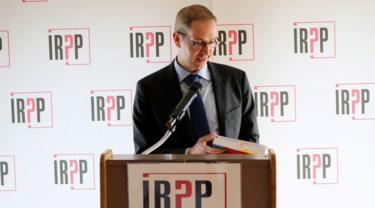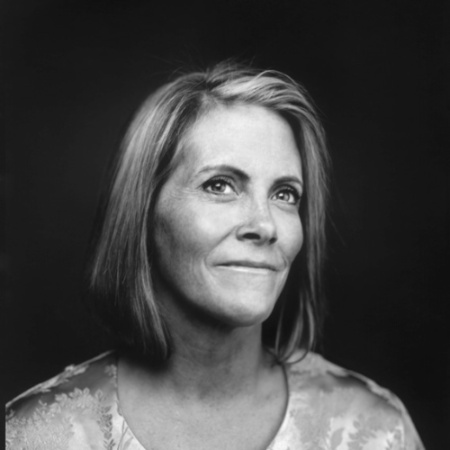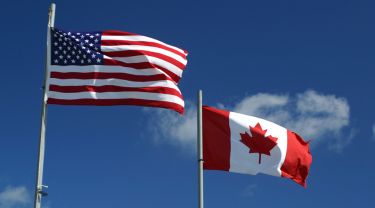
A tough look at Canadian trade policy
When he kicked off a launch event for the Institute for Research on Public Policy’s (IRPP) new book on trade, titled Redesigning Canadian Trade Policies for New Global Realities, John Manley asked audience members if they ever imagined a time when the U.S. president would call Canada’s most important trading relationship “the worst deal ever negotiated in the history of the world?”
The President and CEO of the Business Council of Canada called the new book “an impressive volume” and “a very important and timely contribution to the debate that is just getting underway.” It features contributors from across the public policy spectrum, economists from government and Crown corporations, including Export Development Canada, university professors, trade association officials such as Manley himself, and experts from IRPP.
Manley noted that one of the messages that emerges from the book is that Canada needs to diversify its trade.
“The gravitational pull of the large U.S. economy and its proximity to us makes it very hard for our little country to pull through,” he said. “But the need to do it is perhaps greater that ever.”
He noted that China wasn’t a significant factor when the Canada-U.S. free-trade agreement was proposed in 1988, but “now it’s smacking us in the face.”
He also urged Canada’s large companies to help its small and medium-sized enterprises (SMEs). “Canada’s large enterprises have shown the most success, willingness, patience, and deepest pockets in order to begin those trade relationships,” he said, and added that we need to determine how to enable SMEs to “ride on the coattails” of our larger companies and to build supply chains.
Stephen Tapp, IRPP’s research director and one of the book’s three editors, was a little more blunt about the state of trade, stating that “Canadian trade policy is a bit of a fog” that’s been further complicated by dispute settlement issues with Europe and issues people didn’t expect, including Brexit and the election of Donald Trump.
Tapp set the context in which the book, which features the work of 31 authors from eight different countries, was written. He said there are anxieties about technological change and job losses due to automation. In addition, those on top of the country’s income distribution are capturing the growth because they’re better able to seize the gains from production. Further, people are concerned the economy and trade deals aren’t working for them. Trump, he thinks, has tapped into those anxieties in America, but he said Canada continues to promote a more outward-looking global trade agenda.
Given that, he said the book’s first recommendation is for Canada to develop a more inclusive trade policy, one that’s open to more SMEs, more accessible to female entrepreneurs, and more open to developing economies and emerging markets.
“Job 1 for trade policy right now is to maintain confidence in the system,” he said. “If people believe the benefits are going to a narrow few at the top, they will resist,” Tapp said. “If you want to increase productivity, you need to be [more inclusive.]”
Inclusive trade policy requires rethinking many components including innovation, taxation, infrastructure, competition, labour, and education.
Second, he recommended facilitating resource re-allocation. “If we want to tap into this high-powered potent weapon of trade, we need to make sure that when the global economy is changing, we’re able to move resources to where they need to be.”
Third, he said Canada must promote policies that make the border thinner and allow us to connect quickly, rapidly and reliably to other partners, regardless of where they are. He said our exports now are dependent on our imports and our trade depends, to a large extent, on our foreign direct investment. “We need to see these things comprehensively and cohesively,” he said. “There are a lot of concerns about foreign competition and displacement of workers, but the best approach is not to turn away from that, it’s instead to start to make the trading system work better for us.”
Finally, he recommended building a stronger rules-based global trading system, adding that it’s what a middle power such as Canada must do.
“Going it alone won’t work for us,” he said. “We have to work with partners to build the global trading system we need. The outward-looking view of the world, which has long served us well, probably has never been more important.”















